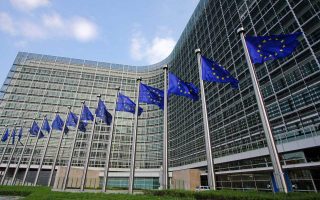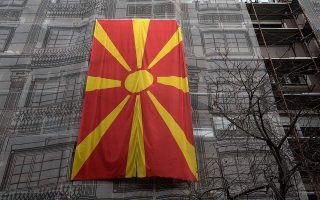Why a name deal with FYROM must be erga omnes

Following a 25-year-old stalemate in the name dispute between Greece and the Former Yugoslav Republic of Macedonia (FYROM), the emergence of a new government led by Zoran Zaev in 2017 has brought the two countries close to a compromise based on the use of a geographic qualifier before the term “Macedonia.”
However, recently, the negotiations seem to have come up against a fresh obstacle in the form of differences between the two countries as to what the scope of usage of the new compound name will be. Greece insists that the new name should be used by all countries for all purposes, i.e. “erga omnes.” On the other hand, FYROM argues that it should be used solely for “international” rather than “domestic” purposes, with the idea that the country’s constitutional name, currently “Republic of Macedonia,” would remain unchanged.
What the latter position means in practice is that for bilateral relations between FYROM and third countries, it would make use of its constitutional name, and so a foreign delegate would simply refer to the country as “Macedonia.” By contrast, FYROM’s participation in international organizations would be under the new compound name, which implies that when the same delegate addressed, for example, the United Nations, he/she would have to refer to the country by the compound name rather than its constitutional title.
The above scenario is not very different from what holds today, except that “FYROM” is the name currently used in international organizations. Thus, loosely speaking, FYROM’s position is about maintaining the status quo.
At first glance, the erga omnes application of the new name might not seem to be necessary. At the end of the day, why should Greece interfere in the nature of bilateral contacts between FYROM and third countries? Notably, why should Greece have a say at all on what people in FYROM call their own country?
But the situation is far more complicated than that. The geographical area of Macedonia is split between Bulgaria, Greece and FYROM. Specifically, more than half of the region lies within modern Greece, which includes the area where the ancient Greek kingdom of Macedon flourished. Both FYROM and Bulgaria contain smaller parts. The region has been home to distinct peoples for several centuries. In northern Greece 2.5 million people identify themselves as both Macedonian and Greek (Macedonian Hellenes), in a regional and historical sense; in FYROM 1.5 million people identify themselves as ethnic Macedonians (Macedonian Slavs).
Currently, the terms “Macedonia” and “Macedonian” have de facto come to refer mostly to (people from) FYROM. The reason is that national identities tend to supersede regional ones. Thus, the Greek Macedonian identity cannot assert itself. When I, a Macedonian Hellene, call myself a “Macedonian,” an Australian, Briton or American will typically get confused.
The only viable solution to the name issue is one that (i) sufficiently differentiates between the two peoples, and (ii) respects the fact that each side claims a Macedonian identity, but should not monopolize it.
To satisfy the conditions above, “international usage” of FYROM’s new name needs to be truly international. And the only way to achieve this is by ensuring that a mutually agreed name, whatever this might be, is ratified through FYROM’s constitution. That is, it becomes valid erga omnes.
There is an additional important reason for arguing in favor of the erga omnes application of the new name. As the region’s recent history demonstrates, the name “Macedonia,” when used with maximalist intentions, can easily become the subject of exploitation by populists in order to gain and maintain power. Unfortunately, this possibility is bound to feed ultra-nationalism on a recurrent basis, thus undermining the stability of the region, the economic prosperity of its people, as well as the prospects for further integration within Europe.
This is particularly so for FYROM because, unlike other countries, nationalism manifests itself through both secessionist and expansionist elements: The former became evident during the so-called “2001 insurgency,” an armed conflict between ethnic Albanians and security forces in the north of the country, which ended with the Ohrid Agreement; the latter was intensified during Nikola Gruevski’s 10-year administration, based on a policy of antiquization, which, as moderates within FYROM claim, attempted to change the collective memory of a Slavic nation and “insert ancient DNA.”
The resulting dichotomization of society into “patriots” and “traitors” became an instrument to subordinate the rule of law and to weaken democratic institutions in favor of raw political power. Gruevski’s authoritarian rule culminated in corruption, systematic attacks on the freedom of the press, several incidents of election fraud, and wiretapping of roughly 1 percent of the population.
Although Gruevski was forced to step down in 2015, he remains a highly influential political figure despite being under investigation. Indeed, in a recent interview, Hristijan Mickoski, Gruevski’s successor as leader of the right-wing VMRO-DPMNE party, described the pro-Western Zaev administration as “criminal” and “the worst government that Macedonia ever had,” hinting that his party will not respect a possible agreement when it returns to power.
A resolution to the naming issue can only be viable in the long term if it respects that each side claims a Macedonian identity, but should not monopolize it. The term “Macedonia” should be safeguarded against nationalistic elements that undermine the stability of the region and prosperity of its citizens. The erga omnes application of the new name is a necessary requirement to achieve these goals.
Vasilis Sarafidis is a member of the Executive Board of the Australian Institute of Macedonian Studies.





